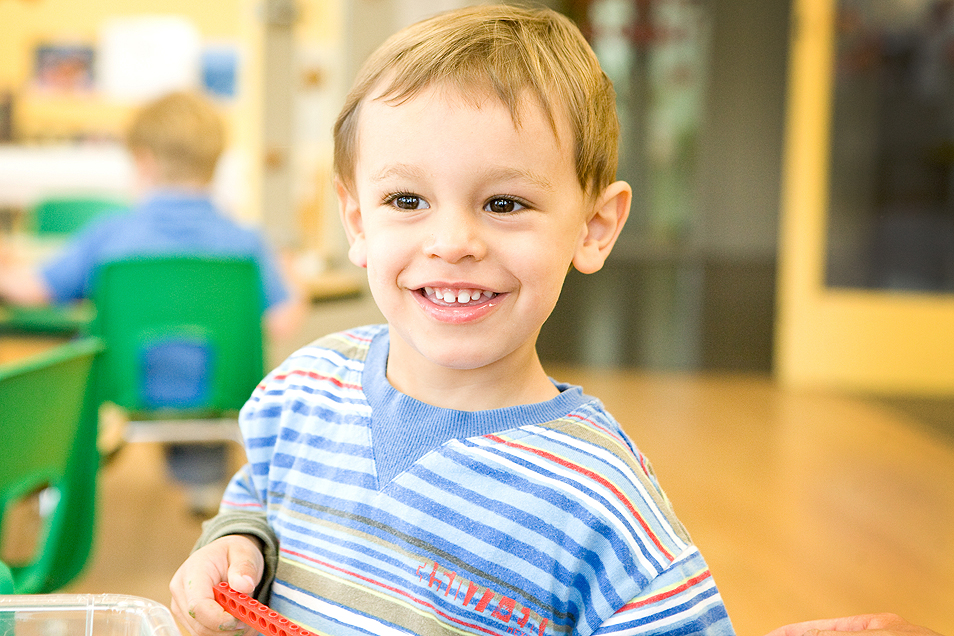Choices . . . you love to have choices, don’t you? Apple or Android? Adidas or Lulu? But sometimes choice can be daunting. At Atelier Kids Early Learning & Care in High Park, we know you’re weighing all of your options to confidently make a decision that will improve your day-to-day life and the development of your child.
In your child’s first five years, their brain develops quicker and more fully than at any other stage of their lifetime. Development can include a change in one’s physical growth, as well as one’s ability to learn social, behavioural, communication and learning skills. Our early childhood experiences are most often the events that shape our adult behaviour, temperament, and individuality. And although we at Atelier Kids daycare in Toronto believe in the benefits of an inquiry-based approach, we’d like to help you compare a Reggio-inspired centre to a few other choices you may have considered.
Reggio Emilia — Project Based
The Reggio Emilia Approach is an innovative and inspiring approach that holds the image of the child as a strong, capable and resilient individual and not an empty vessel that needs to be filled with knowledge. Every child is born with a deep curiosity that drives their interest to understand their world and their place within it.
The Reggio Emilia Approach originated in the town of Reggio Emilia, Italy out of a movement toward progressive and cooperative early childhood education. No two Reggio-inspired communities will look the same, as the needs and interests of the children within each community will be different.
Probably the most well-known aspect of the Reggio Emilia Approach is “the hundred languages” of children; the belief that children use many different ways to express their thoughts and creativity. Learning and play are not separated. The Reggio Emilia Approach takes a child-led project approach where projects aren’t planned in advance, they emerge based on the child’s interests and are often long-term in their exploration.
Children seek knowledge through their own investigations and, with the teacher, they become co-learners and researchers together. Teachers typically work in pairs or trios and, in addition, strive to work with parents creating a community of learning, together in constant communication. Parents, children, and educators are seen as valuable partners, working together in the child’s development.
The classroom environment is often called “the third teacher”. The surrounding outdoor environment, along with the classrooms and the atelier (a place for discovery, experimentation, and creation), fuels the child’s imagination. The spaces respect children as capable of providing them with authentic, high-quality materials. These open spaces, free from clutter, drenched in natural light, and designed to exude order and beauty, encourage children to delve deeper and deeper into the explorations and ever-present provocations on-hand.
Reggio-inspired settings emphasize the careful display and documentation of children’s thoughts and progression of thinking, making their thoughts visible in many different ways: photographs, transcripts of children’s thoughts and explanations, visual representations (drawings, sculptures, etc.), all designed to show the child’s learning process.
Montessori — Child-centered
The Montessori philosophy believes children learn at their own pace and should be allowed to work free of judgment or corrective actions. Montessori is built upon these primary fundamentals: observation, individual freedom, and environmental preparation. In a Montessori environment, seatwork plays a less significant role than physical interaction and activities. Founder of the Montessori Method, Maria Montessori, once said, “the hand is the chief teacher of the brain”, implying that children most often learn by touch. Teachers are viewed as guides who observe children without interfering with them. Montessori teachers must be able to resist the urge to assist a child who is working on a new task. Instead, they should allow a child to learn at their own pace.
Play-based/Theme-based
Based on the belief that kids learn best through play, these centres may be more teacher-directed, although playtime is unstructured. A play-based classroom will look very different from a traditional classroom. Every week can bring a different theme based on holidays, celebrations, or community events. The educator decides on age-appropriate activities for the entire class, involving every child. Children take part in a wide range of play-based activities, including pretend play while teachers respond with lessons.
When choosing a Toronto daycare centre, consider what you value in your child’s care. Opinions from family, colleagues, and neighbours will yield a plethora of considerations but ask yourself what’s right for your child. Will they thrive with structured activities or a good amount of free playtime? Do you want the teacher to direct the day or would your child benefit from choosing activities based on their interests? Does your child love exploring outdoors? Do they like the arts, music, and cultural activities or would they rather build and discover through tactile measures? Maybe they’d like a little bit of everything?
As with any choice, ask a lot of questions and weigh your options. Some philosophies overlap, making it an even tougher decision. Just like your own child, each centre in your neighbourhood is individual in their pedagogy, their approach, the educators, and the stressed emphasis on nutrition and discovery through outdoor play.
Our advice: embrace the process. Observe your blossoming little individual and notice the tendencies and preferences that define their interests and characteristics. What type of environment will put them most at ease? Meet with the educators at your top three choices and speak with the owners and caregivers of the centre to get a first-hand look at who they are and how they intend to offer the best for your child. Keep researching and comparing, but like many decisions, you already know what’s right.
Atelier Kids Early Learning & Care—our Reggio-inspired Toronto daycare—wants to help you make the right decision. Feel free to contact us with any questions you may have about Reggio, Montessori or play-based daycares. We are happy to lend our expertise to help you make the right choice.
More information on our childcare centre in Toronto can be found at atelierkids.com.

